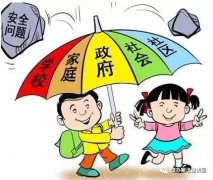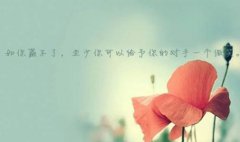2019
Unit 11 How was your school tri p ?
1
2019
Can you teach me how to make dumplings? 你能教给我如何包水饺吗?
4. After that,I went to the gift shop and bought some lovely gifts for my parents.之后,我去了礼品店,给我父母买了几件可爱的礼物。
(1)句中的连词and连接前后两个并列的动作,其中一个动词用了过去式,则另一动词也应用一般过去时。如:
The dog went into the room and sat down next to the old man. 这条狗跑进屋,靠着老人坐下来。
(2)bought是buy的过去式,常用于buy sth. for sb. 或buy sb. sth. “给某人买某物”。如:
My father bought a computer for me last week.
=My father bought me a computer last week. 上周我爸爸给我买了一台电脑。
(3)lovely用作形容词,意为“可爱的,秀丽的”,既可用来修饰人,也可以修饰物,修饰人时强调“给人一种愉快的感觉”。如:
What a lovely girl she is! 她是多么可爱的女孩啊!
The lovely boy has beautiful blonde curly hair. 这个可爱的小男孩留着漂亮的金黄色的卷发。
拓展:lovely还可用于天气,意为“美好的,晴朗的”。如:
What a lovely day it is! 多么晴朗的天啊!
5. They weren’t expensive.它们不贵。
expensive是形容词,意为“昂贵的”,相当于dear。其反义词为cheap或inexpensive。如:
I don’t want to buy the expensive shirt.我不想买这件昂贵的衬衫。
It’s expensive to trave l by plane. 坐飞机旅行很贵。
辨析:expensive,cheap,high与low
(1)expe nsive表示“昂贵的;花钱多的”;cheap表示“廉价的;便宜的”,其主语必须是货物、物品本身。如:
This car is expensiv e,but that one is cheap. 这辆车贵,但那辆车便宜。
(2)high表示价格“高”,low表示价格“低”,其主语为price。如:
The price of this watch is very high. 这块手表的价格很高。
6. All in all,it was an exciting day. 总的说来,这是令人激动的一天。
all in all意为“总的说来,总而言之”,常放于句首。如:
2
2019
All in all,the movie was quite good. 总的说来,这部电影还是相当不错的。
All in all,you did very well. 总之,你干得很好。
辨析:exciting与excited
(1)exciting是形容词,意为“令人激动的;令人兴奋的”,用来修饰事或物。如:
The bus trip was very exciting. 这次公共汽车旅行很令人兴奋。
(2)excited意为“令人兴奋的”,其主语是人。如:
She is excited to learn the exciting news. 她听到这个令人兴奋的消息很激动。
7. It was so hot on the slow train. 坐在缓慢的火车上,天气炎热。
slow用作形容词,意为“慢的;缓慢的”,其反义词为quick或fast。如:
He’s a slow walker.他走起路来慢吞吞的。
Look! His car is slow. 看!他的车太慢了。
拓展:slow还可用作动词,意为“放慢;减速”。如:
You have to slow down your car at the crossing. 在十字路口,你得放慢速度。
8. Everything was about robots and I’m not interested in that.
里面的每件东西都是有关机器人的,我对此不感兴趣。
(1)everything用作不定代词,意为“每件事物”,作主语时,谓语动词用第三人称单数形式。如:
Everything begins to grow in spring. 春天万物开始生长。
Everything goes well. 一切进展顺利。
拓展:everything是由“every+thing”构成,类似单词还有:
every+body=everybody 人人;每人every+day=everyday 每日的;平常的
every+where=everywhere 到处;无论何处
(2)be interested in是固定短语,意为“对……感兴趣”,后可跟名词、代词或动词-ing形式。如:
The students are interested in computer games. 学生们对电脑游戏很感兴趣。
My sister is interested in playing the guitar. 我姐姐对弹吉他很感兴趣。
拓展:be interested in的同义短语是show interest in...,其中interest是名词,意为“兴趣”。如:
Her grandfather is interested in Beijing Opera.=Her grandfather shows interest in B eijing Opera. 她的爷爷对京剧很感兴趣。
3
2019
8. The rooms were really dark and it was difficult to take photos,... 里面的房间十分阴暗,很难拍照,……
(1)d ark在此句中为形容词,意为“黑暗的”。如:
It’s getting dark.天快黑了。
拓展:dark还可用作名词,意为“黑暗,黑夜,暗处”。如:
We could see nothing in the dark. 我们在黑暗中什么也看不到。
Some children are afraid of the dark. 有些小孩怕黑。
(2)It’s+adj. +(for sb.)+ to do sth.为固定句型,意为“对(某人来说)做某事是……的”,如: It’s easy for me to sing a song.
对我来说,唱首歌很容易。
It’s exciting to play snowmen in winter.冬天,玩雪人是很令人兴奋的一件事。
9. There were also too many people and I couldn’t really see or hear the guide.有很多人,我真的看不到也听不到导游的(声音)。
(1)too many太多,后接可数名词复数。如:
There are too many people in the park. 公园里人太多。
辨析:too many,too much与much too
too many意为“太多”,后跟可数名词复数。
There are too many people in the supermarket today. 今天超市里有太多的人。
too much意为“太多”,后跟不可数名词。
I have too much homework to do this weekend. 这个周末我有太多的作业要做。
much too意为“极其;非常;太……”,相当于副词very,修饰形容词或副词。
The book is much too expensive. 这本书太贵。
【助记歌诀】
too much,much too 去掉前词看后头;
much后跟不可数,too则修饰形或副。
too many要记住,后面名词必复数。
(2)hear用作及物动词,意为“听见,听说”。如:
I often hear him sing in that room. 我经常听到他在那个房间里唱歌。
辨析:hear,listen与sound
4
2019
She liste ned but could hear nothing. 但什么也没听见。
不定式的用法。本句句意
_________wit h the wild animal.
5
2019
—Have you ever read the book Harry Potter?
—Yes,and I think it’s very _________. I want to read it again.
A. boring
B. exciting
C. bored
【解析】考查形容词用法。very后接原级,从后面的提示“我想再读一遍”。可推出很“令人兴奋”。exciting用来修饰事或物,excited主语是人,且作表语。故选C。
【答案】B。
6


